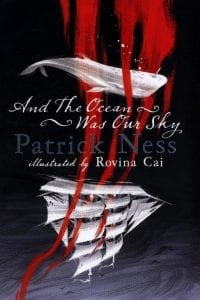 The challenge of historical fiction – reflecting events of the past, recalling people of the past, and weaving these convincingly into a story. As a favourite genre of many people, it is also one open to critique when it strays too far from the truth perhaps?
The challenge of historical fiction – reflecting events of the past, recalling people of the past, and weaving these convincingly into a story. As a favourite genre of many people, it is also one open to critique when it strays too far from the truth perhaps?
In ‘A Room Made of Leaves’, celebrated author Kate Grenville opens up the world of Elizabeth Macarthur. She invites readers to consider a different perspective of life in early colonial Sydney – one not normally addressed by high school history classes – the female perspective.
Historically, John Macarthur is lauded as the pioneer of the wool industry, with his portrait gracing Australian currency over the years. However, his dark side as a scheming, driven personality is what drives this story. In his absence from the colony (fighting Governors and facing a court-martial in England), it seems his wife and sons were the ones driving this pioneering success.
Writing as Elizabeth Macarthur compiling her account of their personal history, Grenville challenges our acceptance of historical records and our assumptions about life for the early settlers. Early on, the reader is warned: ‘do not believe too quickly’, though we quickly become absorbed into this changed view of history.
A clever portrayal of Australian history. One to make you think, question, and consider what history really is. HIStory vs HERstory?
 In the busyness of life, it’s sometimes hard to find the time to dedicate to a whole novel. With schoolwork, sport and other activities, time to read has fallen aside. And if you find reading hard, keeping track of a storyline can be difficult. Why not try a short story or two?
In the busyness of life, it’s sometimes hard to find the time to dedicate to a whole novel. With schoolwork, sport and other activities, time to read has fallen aside. And if you find reading hard, keeping track of a storyline can be difficult. Why not try a short story or two? Patrick Ness, the author of ‘a Monster Calls‘ and ‘the Chaos Walking‘ trilogy, is known for looking at things from a different perspective – so the inverted point of view in ‘And the Ocean was our Sky‘ should come as no surprise.
Patrick Ness, the author of ‘a Monster Calls‘ and ‘the Chaos Walking‘ trilogy, is known for looking at things from a different perspective – so the inverted point of view in ‘And the Ocean was our Sky‘ should come as no surprise.